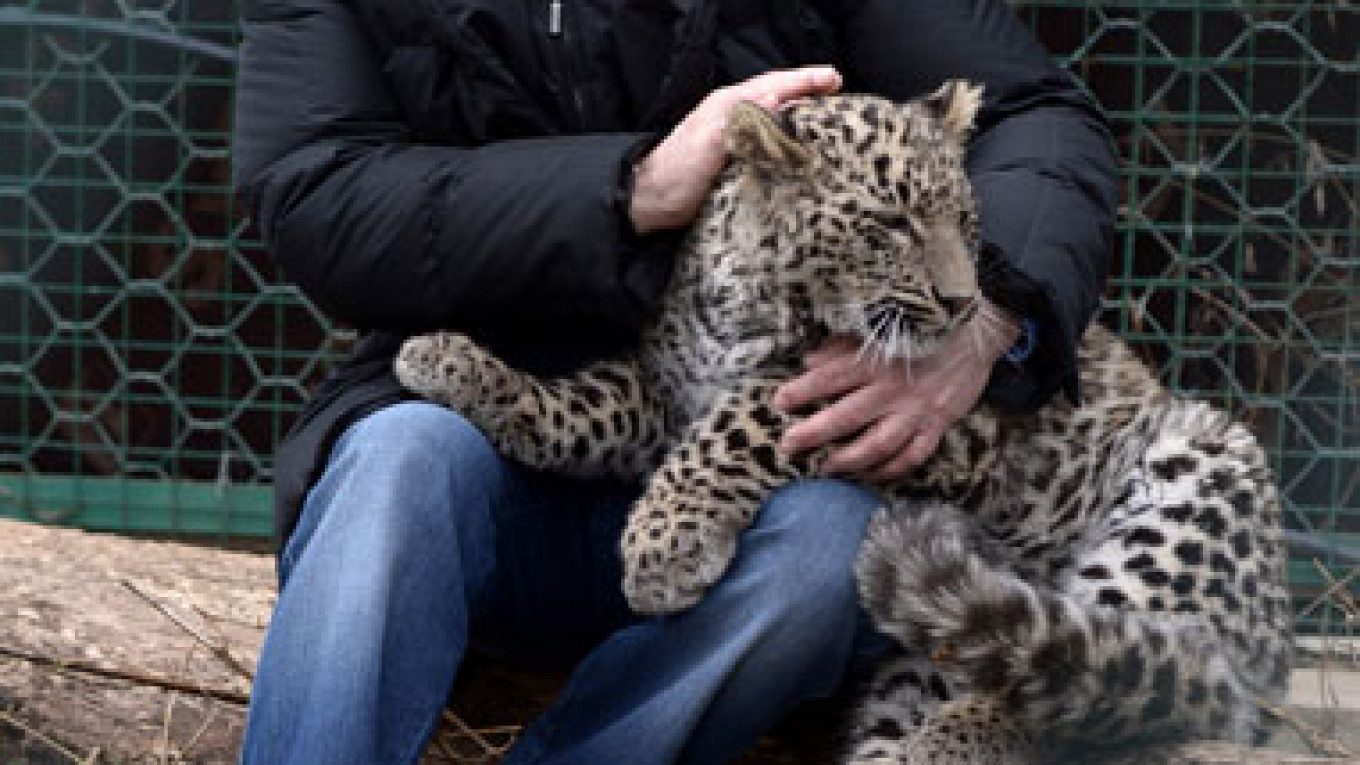President Vladimir Putin concluded the 126th session of the International Olympic Committee in Sochi on Tuesday evening just as he delivered Russia's appeal to committee voters in Guatemala in 2007 before they chose a city for the Winter Games: in English.
"Dear friends, ladies and gentlemen! I declare the 126th IOC session open," Putin said at the ceremony, Interfax reported.
He went on to point out that when the decision to award Sochi the honor of hosting the games was made, only 10 to 15 percent of the infrastructure was ready. Putin said that the IOC trusted the strength of Russia and the Russian character, which has no fear of difficulties.
He had arrived in Sochi earlier in the day to begin his role as host to visitors three days before the opening ceremony.
After arriving, Putin visited Sochi National Park and an animal breeding and rehabilitation center which cares for Persian leopards.
"We have decided to restore the population of the Persian leopard because of the Olympic Games," Putin said. "Let's say that because of the Olympic Games, we have restored parts of destroyed nature," he added, the Associated Press reported.
Putin entered a cage and petted the leopard on the head. "We liked each other," he said.
But the accompanying journalists apparently upset the big cat, which scratched one of them on the hand and bit another on the knee, Russian news agencies reported.
The president's visit with the leopards will perhaps be the most relaxing part of his trip, as he will be quite busy for the days ahead of the kick-off ceremony.
Wednesday will see Putin meet with members of the Russian Olympic Committee and the Russian winter Olympians before a flurry of meetings on Thursday with foreign dignitaries including Chinese President Xi Jinping, Dutch Prime Minister Mark Rutte, Japanese Prime Minister Shinzo Abe and Turkish Prime Minister Tayyip Erdogan. A Kremlin statement said that Putin will hold a reception for more than 40 foreign heads of state and government officials before Friday's opening ceremony.
Some prominent Western leaders will be noticeably absent from the Olympics, including U.S. President Barack Obama and British Prime Minister David Cameron. Gay activists previously called for a boycott of the games to protest Russia's "gay propaganda" law, which prohibits promoting homosexuality to minors, though Obama and Cameron said that their decisions not to attend were based on their schedules.
In his welcome comments on Tuesday evening, Putin said that Russia had acquired significant know-how in its preparations for the games, and was ready to share it with all members of the Olympics family. He highlighted extensive experience in implementing Olympics projects, sports and a healthy way of life, Interfax reported. The largest publicity campaign in Olympics history and a unique Olympic torch are two examples of Russia's expertise, Putin said. The torch travelled across the country and was even sent to the International Space Station.
Who will actually ignite the Olympic cauldron at the opening ceremony Friday remains a mystery. Earlier in the day, Putin dismissed reports on the alleged identity of the athlete who will have that task, RIA Novosti reported.
Well-connected Russian socialite Ksenia Sobchak had tipped Olympic gold medal-winning rhythmic gymnast Alina Kabaeva — whom media reports have said has been romantically involved with the president — for a role in the lighting of the flame. Asked whether he had heard the rumor, Putin said: "I am aware of it. [press secretary Dmitry] Peskov told me, but these are just more joke stories."
Staff writer Justin Lifflander contributed to this report.
Contact the author at c.brennan@imedia.ru
A Message from The Moscow Times:
Dear readers,
We are facing unprecedented challenges. Russia's Prosecutor General's Office has designated The Moscow Times as an "undesirable" organization, criminalizing our work and putting our staff at risk of prosecution. This follows our earlier unjust labeling as a "foreign agent."
These actions are direct attempts to silence independent journalism in Russia. The authorities claim our work "discredits the decisions of the Russian leadership." We see things differently: we strive to provide accurate, unbiased reporting on Russia.
We, the journalists of The Moscow Times, refuse to be silenced. But to continue our work, we need your help.
Your support, no matter how small, makes a world of difference. If you can, please support us monthly starting from just $2. It's quick to set up, and every contribution makes a significant impact.
By supporting The Moscow Times, you're defending open, independent journalism in the face of repression. Thank you for standing with us.
Remind me later.






